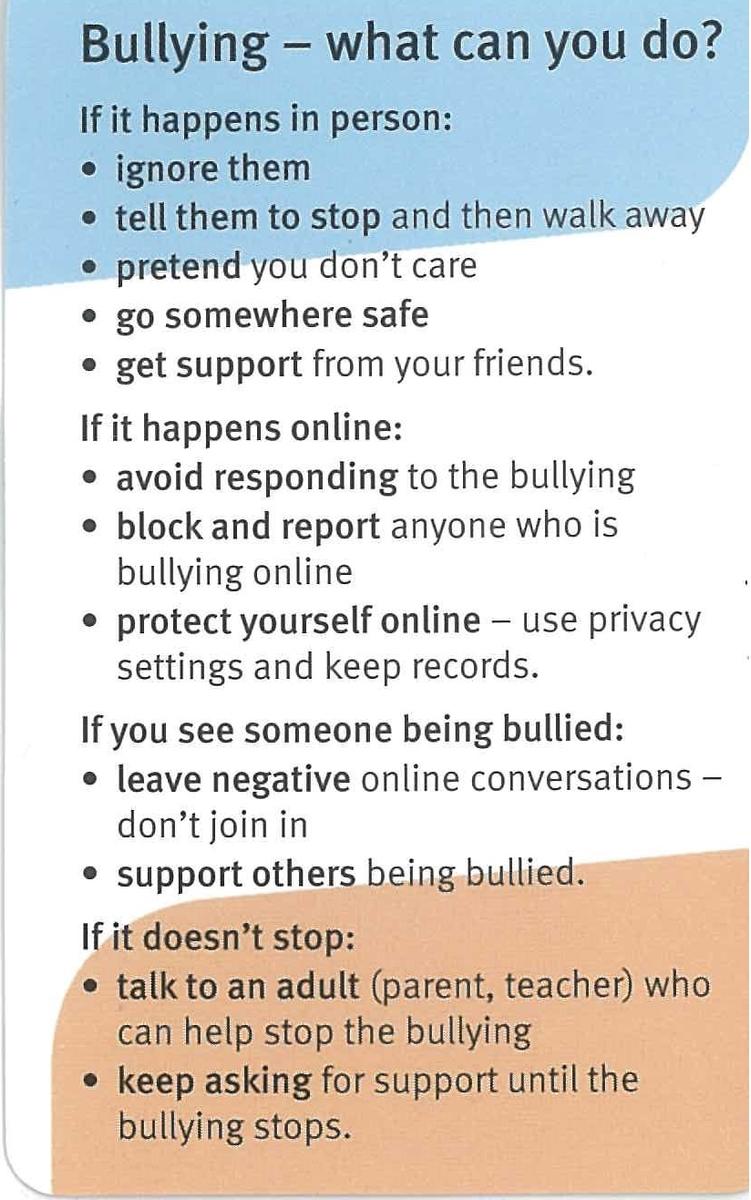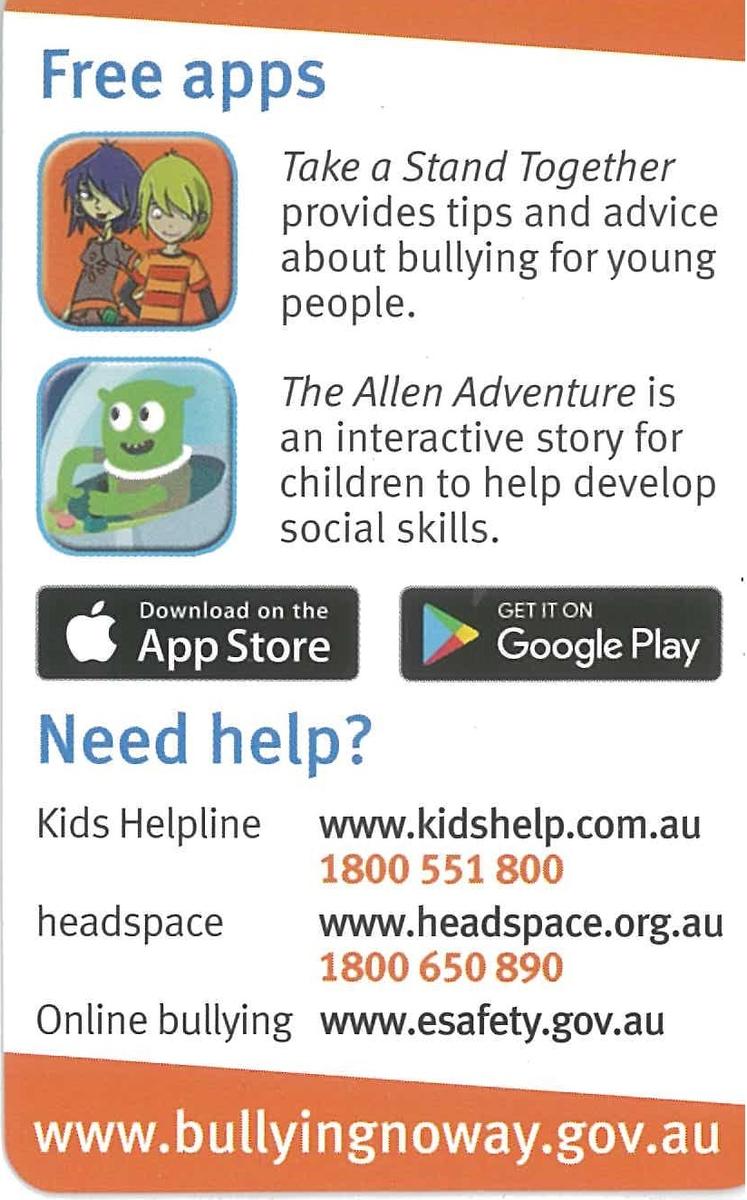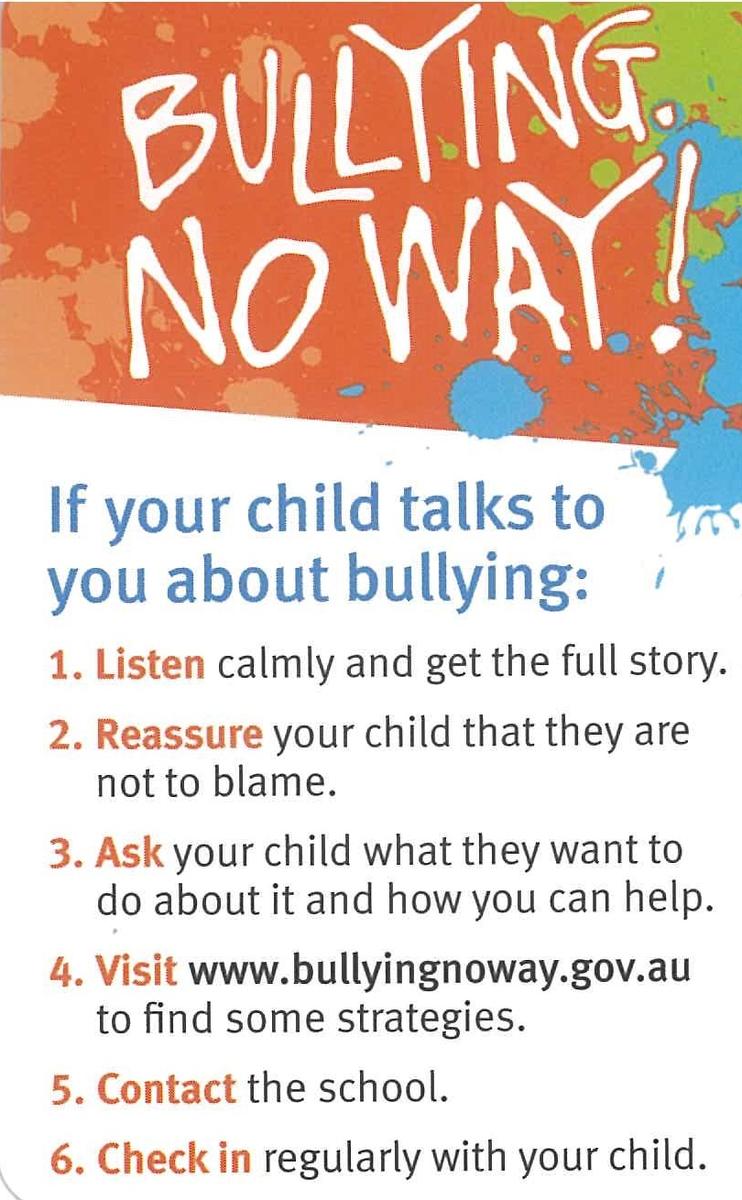Bullying. No Way! Day

Let's get ready to say Bullying. No Way! on Monday 22 March.
National Day of Action Against Bullying and Violence
On Monday 22nd March the College will participate in the National Day of Action Against Bullying and Violence. This important day is a time in our school calendar where we make a stand to say no to all forms of bullying and violence in our community.
Students may dress in casual clothes on the day and bring a gold coin donation. All funds raised will go to local charities. The VCAL students will host activities and a BBQ. The Wellbeing Team will also lead activities and share information with students regarding what to do and who to approach if they experience bullying. Student will be encouraged to write positive message to others, and this will help spread positivity across our school.
Eradicating bullying is important to our College not just on this day, but every day. Students will spend time in the lead up to the week learning about the impact of bullying and the role we all play in getting it out of our community with their home group period. To access our school's anti-bullying policy click here. If students need support regarding bullying, they should speak with their home group teacher, year level coordinator or a member of the Wellbeing Team.
At Victoria University Secondary College, we are dedicated to supporting our students and families. We need to ensure we are providing safe and supportive learning environments, free from bullying, harassment and violence.
We have a number of programs, policies and initiatives in place at Victoria University Secondary College that counter bullying. In 2017 Victoria University became an accredited eSmart school. eSmart, an initiative of the Alannah & Madeline Foundation, helps teachers to best manage cyber risks, bullying and cyber bullying issues and incidents so students feel safer and supported at school.
It is a framework that sits across the entire school – teachers, students, parents and the school community – and is embedded into the school through the curriculum, leadership, technology and wellbeing.
Parents and carers play a vital role in supporting their teenager if they are dealing with bullying at school. It’s important to let parents know of the tools and support available to help them help their teenager.
Did you know?
– 1 in 3 young people have experienced some kind of bullying behaviour.
– The internet and mobile phones are fast becoming one of the key tools in bullying behaviour. Recent statistics indicate that 20% of young people have experienced cyberbullying.
– Parents can play an important role in moderating bullying behaviour, by modelling respectful relationships, encouraging safe online activity, and building supportive relationships with their children.
What signs might indicate your child is being bullied?
- Suddenly doesn’t want to attend school or other places they normally enjoy
- Being quiet or withdrawn
- Unexplained cuts or bruises
- Reporting vague headaches or stomach aches to avoid going to school
- Ripped or stained school clothes
- 'Losing’ lunch money or other things at school
- Falling out with previously close friends
- Being moody or easily distressed
- Experiencing difficulty sleeping at night
- Showing sudden changes in eating behaviour.
What can I do if my child is being bullied?
- Remain calm if your child tells you they are being bullied.
- Tell them that bullying is never okay, and reassure them that it’s not their fault.
- Don’t suggest violence or retaliation as a response to the bullying.
- Discuss ways to stop giving power to the person doing the bullying – for example, by walking away, or ignoring them and their behaviour.
- Reassure them that you will help to stop the bullying from continuing. It can be helpful to discuss any personal experiences you have had with bullying behaviour and how you dealt with it.
- Find out what, when and where the bullying is occurring and who was involved. Contact the school to ensure that teachers are aware of the problem, and work out a plan with them for how to address it.
What can I do if my child is exhibiting bullying behaviour?
- Try not to be angry with your child. Instead, try to understand the reasons for their behaviour.
- Show your concern for the person who is being bullied, and support your child to ‘take a walk in their shoes’. Ask them to imagine how it makes them feel when they are being bullied.
- Discuss with your child ways to reduce the likelihood of this behaviour occurring again.
- Model respectful behaviour in your home, and demonstrate appropriate ways of resolving conflict.
- Report the problem to the school, and work with teachers to develop a plan to prevent it from happening again.
Find out more at https://parents.au.reachout. com/Common-concerns/Everyday-issues/ Things-to-try-bullying-behaviour/Advice-from-a-psychologist-bullying-behaviour
Visit the Bullying. No Way! website (www.bullyingnoway.gov.au) for practical advice and information to help students, parents, teachers and other members of the school community to work together against bullying.



